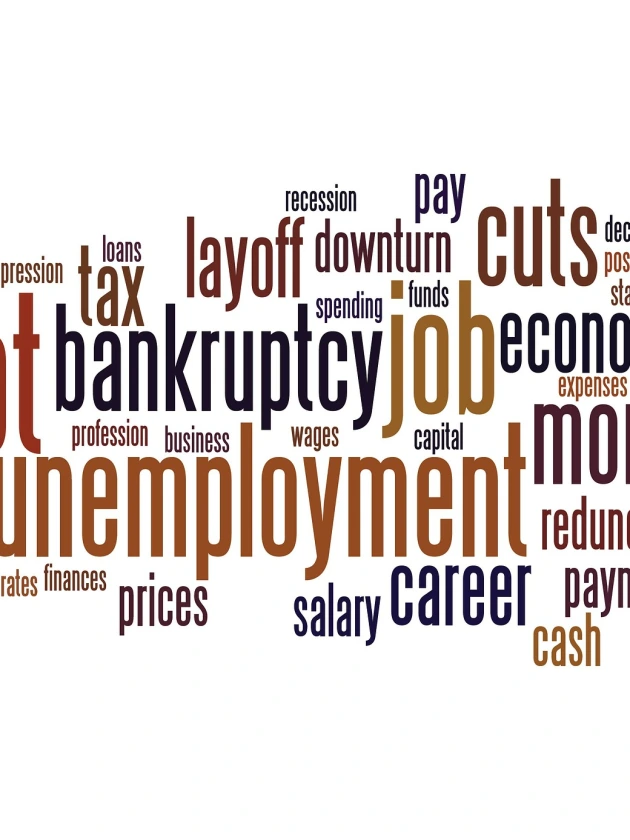[This is Part 4 of the series ‘NexGen Economics’ (NGE). The series will throw light upon how the future or next generation economics would change the way of doing businesses, managing nations and living lives too. Let us enter and try to decode the future.]
Read Part 1, Part 2 and Part 3 of the series, in case you have missed them.
I was in 10th standard when the 2008 financial crisis unravelled. It was a buzz for media and public then. 10 years later, talks about the next financial crisis had begun. Journalists and economists are talking about the past mistakes, lessons to be learnt and causes of next crisis. This made me think, read and write about the financial crisis. Though I am not an expert to predict or even talk about the next crisis, I believe certain aspects of crisis are scarce in discussions. I would like to highlight a few of them.
Seeds of the Next Crisis
Everyone was affected by Global Recession of 2008 (also called as North Atlantic Financial Crisis) directly or indirectly. Intertwined financial sector across the world, housing price bubble in USA and widespread use of complex and exotic financial instruments were some of the main causes of the crisis. After the crisis, G20 countries decided to reduce interest rates and increase public expenditure for stimulating aggregate demand and growth. This synchronised effort from all countries could achieve only 3% GDP growth in the year 2018. Recovery is rather slower despite of ultra-low or negative interest rates. Rising share of shadow banks (non-banking financial institutions), corporate debts and non-performing assets have made the financial sector more volatile. The advanced economies are yet to spring back to the pre-crisis levels while emerging markets are haunted with high-debt levels, currency free fall, rising crude oil prices and trade war tensions.
The policies that were implemented then had many side effects even outside the financial sector. Crisis was followed by lower fertility rates coupled with faster ageing population and declining net migration (immigration minus emigration) in advanced economies. It led to lower labour productivity (labour productivity is the output per unit of labour) which reduced the profitability and demand for labour. It resulted in unemployment. Loss of employment contributed to ever-increasing income inequality and rise of protectionist sentiments around the globe. Victory of Trump, Brexit and rise of right-wing or ultra-right-wing forces in most countries were fallouts of such sentiments.
Rising interest rates, emerging market crisis, trade war, Euro crisis, student loan pile up in USA, rise of protectionist forces, artificial intelligence, fake news and cyber-attacks are all blamed for the next global crisis. Simultaneous occurrence of these events will have devastating and long-lasting impact on the world economy as well as societies.
Memory
Before 2008, the world witnessed such a grave crisis in 1930, termed as the Great Depression. There was a long period of calmness, called as the period of Great Moderation post-1930s. Such a long gestation faded the memory of crisis and people believed that the financial world is now less risky. The biggest failure was in our imagination of large-scale economic crisis. We failed to contemplate such a possibility barring a handful of economists who predicted the 2008 turmoil. 15th September 2018 marked the 10th anniversary of the Global Recession. Every expert was asked whether he/she thinks the next crisis is underway. There is “anniversary effect” around the financial world. (As per psychology, anniversary effect is the unique set of feelings, thoughts or memories that occur on the anniversary of a significant experience. Apart from today’s growing uncertainty, 10th anniversary might be also be important due to the cognitive attraction towards number 10. We consider number 10 as the most rational number.)
One must note that such predictions are important for two reasons. Firstly, prevention is better than cure. Forewarnings or cautions are necessary to make policy-makers and people at large aware about the risks involved. Secondly, the memory recall. As experienced in the past, loss of financial crisis memory sets up the new normal for the market. Thus, it is important that we remember the crisis again and again to avoid the mistakes of the past.
The Basic Fix
In the words of Yanis Varaoufakis, “If I am a financial expert who predicted every economic phenomenon and I tweet as a prank, ‘tomorrow the stock market will crash’. You know what will happen; the stock market will crash because people believe me and I have reputation.” He compared the same example with weather forecast. If a meteorological department says that it will rain the next day, then it may or may not rain. He adds, “The nature does not give damn about what we say about it and here lies the difference between natural science and economics.” Such is the behaviour of markets. The world is connecting and communicating faster. Information spreads quicker than fire. However, its veracity is in question and it remains prerogative for the reader to check before sharing such information. Although it is important to be prudent and vocal about the risks, one must be aware about the feedback loop of such comments and predictions. Economists and politicians are the sources of such information and thus, must be responsible for such acts. The anniversary effect thus needs to be channelized positively rather than spreading misinformation or panics in the political economy.
Deeper Issues
This apart, I don’t believe that the next crisis will be entirely financial in nature. There are deeper problems which can originate from societies. Current political landscape and technological advancement might be the core issues.
Historically, wars gave a fresh start to economies. Though the possibility of another world war is distant, the paradigm shift in politics can be hostile. Protectionism and right-wing politics might change the world order. The democracy and capitalism need not be the ‘end of the history’.
Reduced demand for labour and technological advancement went hand in hand in most countries. However, highly populated countries pose a big challenge to maintain the balance between use of labour and robots. Lack of sophisticated skill sets within the populace can make the situation worst. Add income inequality into this and the result could be mass unemployment, distress, protests and political instability in many countries.
There’s lot to happen and lot to do in this chaos. Hope we fix things and create a better place to live after the centrifugation.
-Swapnil Karkare
References and Further Information:
International Monetary Fund – 1








